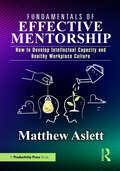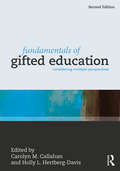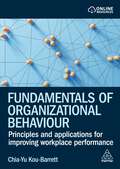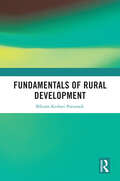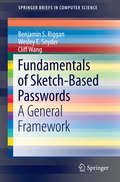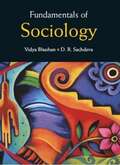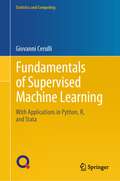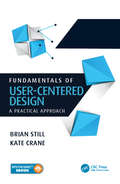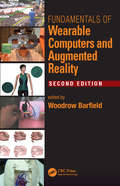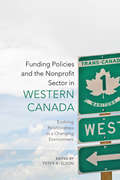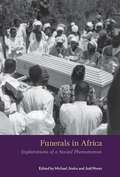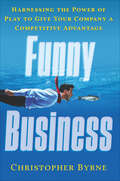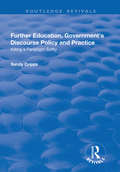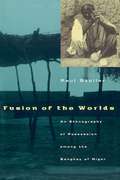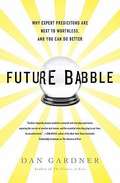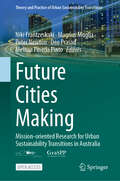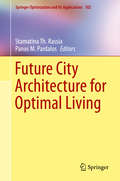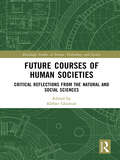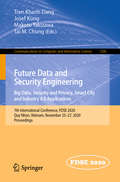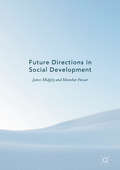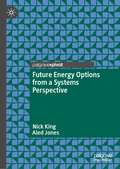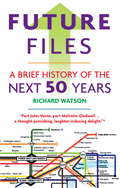- Table View
- List View
Fundamentals of Effective Mentorship: How to Develop Intellectual Capacity and Healthy Workplace Culture
by Matthew AslettGame AI Uncovered: Volume Three continues the series with another collection of chapters from 18 of the top game AI professionals and researchers, from around the world. Each chapter includes wisdom, ideas, tips, and tricks that were used in the development of video games.The techniques discussed in these pages cover the underlying development of a wide array of published titles, including Watch Dogs: Legion, City of Gangsters, Eve: Valkyrie, Firefall, The Persistence, Advance Soccer, Alpha Beta Gunner, and Luna Abyss.Contained within this volume are insights that cover a host of different areas within game AI, including vehicle AI, simulating social norms, AI spawning fundamentals, pathfinding, creation of characters using components, animation-driven behaviour, tactical positioning in football, automated testing, abstract pattern matching, and machine learning for games.Beginners in the area of game AI, along with professional developers, will find a wealth of knowledge that will not only help in the development of their own games but also spark ideas for new approaches.This volume includes chapters written by Dr Allan Bruce, Anubha Banerjee, Bruno Rebaque, Dale Green, David Wooldridge, Eric S. Le Saux, Greg Irwin, Jason Lok Heng Chin, Johan Holthausen, John Reynolds, Mathias Siemonsmeier, Michele Condò, Dr Nic Melder, Paul Roberts, Phil Carlisle, Richard Bull, Robert Zubek, and Tobias Karlsson.
Fundamentals of Gifted Education: Considering Multiple Perspectives
by Carolyn M. Callahan Holly L. Hertberg-DavisThe field of gifted education is characterized by a perplexing array of perspectives concerning such fundamental issues as definition, identification, curriculum, social and emotional development, and underserved populations. Fundamentals of Gifted Education provides a coherent framework for planning effective programs, providing appropriate educational services, and evaluating programs for the gifted. Parts are organized around fundamental issues confronting the field and follow a common structure: an introductory chapter that provides an overview of the theme of that part as well as guiding points and questions for the reader followed by representative point-of-view chapters written by leading experts that provide varied perspectives on the topic at hand.
Fundamentals of Organizational Behaviour: Principles and Applications for Improving Workplace Performance
by Chia-Yu Kou-BarrettObtain real-world knowledge of organizational behaviour to better understand people within organizations and make businesses operate more effectively.Fundamentals of Organizational Behaviour is a hands-on and streamlined textbook exploring an area that can at times seem challenging and abstract. It covers key areas including individual differences at work, motivation, leadership styles and conflict and negotiation, without assuming students' prior knowledge or working experience. It also explores cutting edge topics such as the implications of technology and remote working on workplace behaviour.This new textbook examines power, status and political behaviours, organizational change and culture and organizational structure and design. It includes real-world examples throughout and is supported by a range of features including learning outcomes, key concepts and terminology boxes and reflective exercises to aid professional development.Fundamentals of Organizational Behaviour is an essential resource for masters level and upper-level undergraduate students on HRM and Management degrees, taking modules on Organizational Behaviour.
Fundamentals of Rural Development
by Bikram Keshari PattanaikThe book expounds on the functioning of rural development as well as the practical problems encountered in the formulation of rural development policies and programmes. It provides an exhaustive account of the various sectors and actors of rural development and presents it as a multidimensional concept by documenting its different components. It also details the paradigms and strategies of rural development adopted by developed and developing countries of the world.This volume deals with rural cooperatives and livelihood in order to understand how the development process can be self-sustained and sustainable, following the vocal for local mantra. It also extensively discusses rural basic needs, poverty, employment, the role of Panchayati Raj institutions, the corporate sector, NGOs, peoples’ participation, and capacity building in rural development.This book will be useful to undergraduate and postgraduate students, researchers, and teachers of development studies, economics, sociology, political science, and public administration. It will be useful for the administrators and development administration officials of state and central government, planners, policymakers, and people working in NGOs and corporate sector functionaries dealing with corporate social responsibilities especially those handling developmental issues and challenges.
Fundamentals of Sketch-Based Passwords
by Cliff Wang Benjamin S. Riggan Wesley E. SnyderThis SpringerBrief explores graphical password systems and examines novel drawing-based methods in terms of security, usability, and human computer-interactions. It provides a systematic approach for recognizing, comparing, and matching sketch-based passwords in the context of modern computing systems. The book offers both a security and usability analysis of the accumulative framework used for incorporating handwriting biometrics and a human computer-interaction performance analysis. The chapters offer new perspectives and experimental results regarding model uniqueness, recognition tolerance, and the human-computer interaction. The results demonstrate that biometrics reduce the equal error rate (EER) by more than 10%, and show that people are capable of accurately reproducing a sketch-based password. Fundamentals of Sketch-based Passwords: A General Framework targets computer scientists and engineers focused on computer security, biometrics, and human factors. Advanced-level students in computer science and electrical engineering will find this material useful as a study guide for their classes.
Fundamentals of Social Psychology
by Nicky HayesThis textbook brings social psychology up to date, including material on social networking, gaming and other aspects of modern living, as well as covering established theories, debates and research. The book explores a number of fascinating topics, including: Both traditional and contemporary theories of social influence. How our personal psychology is shaped by our interactions with other people. How social psychological insights have been applied in various aspects of modern life. Intended as a core social psychology text, and including features such as boxed talking-points, real-world examples and case studies, and self-test questions, the book and associated website will cover all the essential topics of an undergraduate course in social psychology in a concise, fresh and up-to-date way. A comprehensive and contemporary undergraduate introduction to social psychology, it draws together and integrates insights from different areas of research and schools of thought, and features uniquely strong coverage of the online world and our cyberselves. Written particularly for degree students of psychology, it will be useful to anyone looking for a comprehensive and readable account of social psychological research and theories.
Fundamentals of Sociology FYBA - SPPU
by Vidya Bhushan D. R. SachdevaFundamentals of Sociology is a textbook for undergraduate students of sociology. This book comprehensively explains the basics of sociology, including social concepts, institutions and the theories of prominent thinkers. Importance has also been given to various important approaches to sociology, including women and society, social change and the role of social legislation in social change. The book is designed keeping in mind the students' needs. Therefore, every unit is divided into chapters, which are further divided into subtopics. Every chapter ends with a number of questions for the students' practice. The book contains an exhaustive list of suggested readings for students who wish to explore this subject further.
Fundamentals of Supervised Machine Learning: With Applications in Python, R, and Stata (Statistics and Computing)
by Giovanni CerulliThis book presents the fundamental theoretical notions of supervised machine learning along with a wide range of applications using Python, R, and Stata. It provides a balance between theory and applications and fosters an understanding and awareness of the availability of machine learning methods over different software platforms.After introducing the machine learning basics, the focus turns to a broad spectrum of topics: model selection and regularization, discriminant analysis, nearest neighbors, support vector machines, tree modeling, artificial neural networks, deep learning, and sentiment analysis. Each chapter is self-contained and comprises an initial theoretical part, where the basics of the methodologies are explained, followed by an applicative part, where the methods are applied to real-world datasets. Numerous examples are included and, for ease of reproducibility, the Python, R, and Stata codes used in the text, along with the related datasets, are available online.The intended audience is PhD students, researchers and practitioners from various disciplines, including economics and other social sciences, medicine and epidemiology, who have a good understanding of basic statistics and a working knowledge of statistical software, and who want to apply machine learning methods in their work.
Fundamentals of User-Centered Design: A Practical Approach
by Brian Still Kate CraneThere has been some solid work done in the area of User-Centered Design (UCD) over the last few years. What’s been missing is an in-depth, comprehensive textbook that connects UCD to usability and User Experience (UX) principles and practices. This new textbook discusses a theoretical framework in relation to other design theories. It provides a repeatable, practical process for implementation, offering numerous examples, methods, and case studies for support, and it emphasizes best practices in specific environments, including mobile and web applications, print products, as well as hardware.
Fundamentals of Wearable Computers and Augmented Reality
by Woodrow BarfieldData will not help you if you can't see it where you need it. Or can't collect it where you need it. Upon these principles, wearable technology was born. And although smart watches and fitness trackers have become almost ubiquitous, with in-body sensors on the horizon, the future applications of wearable computers hold so much more. A trusted refer
Funding Policies and the Nonprofit Sector in Western Canada: Evolving Relationships in a Changing Environment
by Peter R. ElsonFunding Policies and the Nonprofit Sector in Western Canada offers a detailed yet accessible account of nonprofit funding policies in a region characterized by fiscal conservatism, a cyclical resource-based economy, and a growing share of Canada's population and GDP.The chapters in this collection offer compelling and candid analyses of the realities of nonprofit funding in Western Canada. Each combines practical insights with academic rigour, providing critical historical context and an up-to-date profile of funding for services. For each province, a leading practitioner has provided an insider perspective into a specific regime or organization: nonprofit housing in British Columbia; the politics of social policy in Alberta; sport, culture, and recreation, and lottery funds in Saskatchewan; and community economic development in Manitoba.Written by leading researchers and practitioners, Funding Policies and the Nonprofit Sector in Western Canada offers a solid foundation on which policymakers, scholars, and practitioners alike can examine the challenges and opportunities of the contemporary funding environment.
Funeral Rites in Contemporary Korea: The Business of Death
by Gil-Soo HanThis book explores 21st century Korean society on the basis of its dramatically transforming and rapidly expanding commercial funeral industry. With insights into contemporary Confucianism, shamanism and filial piety, as well as modernisation, urbanisation, the division of labour and the digitalisation of consumption, it is the first study of its kind to offer a sophisticated, integrated sociological analysis of how the commodification of death intersects with capitalism, popular culture and everyday life in contemporary Korea. Through innovative analyses of funeral advertising and journalism, screen and literary representations of funerals, online media, consumer accounts of using funeral services and other sources, it offers a complex picture of the widespread effects of economic development, urbanisation and modernisation in South Korean society over the past quarter century. In the aftermath of the Korean “economic miracle” novel ways of paying respect to deceased kin have emerged; using Max Weber's concept of “pariah capitalism”, Gil-Soo Han shows how the heightened obsession with and boom in the commodification of death in Korea reflects radical transformations in both capital and culture.
Funerals In Africa
by Joel Noret Michael JindraAcross Africa, funerals and events remembering the dead have become larger and even more numerous over the years. Whereas in the West death is normally a private and family affair, in Africa funerals are often the central life cycle event, unparalleled in cost and importance, for which families harness vast amounts of resources to host lavish events for multitudes of people with ramifications well beyond the event. Though officials may try to regulate them, the popularity of these events often makes such efforts fruitless, and the elites themselves spend tremendously on funerals. This volume brings together scholars who have conducted research on funerary events across sub-Saharan Africa. The contributions offer an in-depth understanding of the broad changes and underlying causes in African societies over the years, such as changes in religious beliefs, social structure, urbanization, and technological changes and health.
Funktionalismus und Neofunktionalismus: Eine Einführung
by Hans-Jürgen AretzDieser Beitrag zur soziologischen Theorie führt in das funktionalistische Denken ein und besteht aus zwei Bänden. In Band 1 (Kapitel 1 bis 7) steht die wissenschaftstheoretische Erörterung der funktionalen Analyse in ihrer Anwendung auf organische und soziale Systeme im Mittelpunkt. Die Funktionsanalyse ist zwar nur eine Methode, in der Soziologie hat der Funktionalismus aber den Charakter eines Paradigmas angenommen. In Band 2 (Kapitel 8 bis 13) wird der Entwicklungsgang des sozialwissenschaftlichen Funktionalismus von seinen Anfängen bis hin zum Strukturfunktionalismus und zum Neofunktionalismus sowie zur Systemtheorie von Luhmann in seinen wichtigsten Stationen dargestellt. Die Diskussion konzentriert sich dabei auf die herausragenden Vertreter, die diesem Paradigma im engeren Sinne zugerechnet werden. Ausgeschlossen werden somit alle theoretischen Ansätze, die zwar einige Merkmale einer Funktionsanalyse enthalten, aber nicht eigentlich zum soziologischen Funktionalismus gehören.
Funny Business: Harnessing the Power of Play to Give Your Company a Competitive Advantage
by Christopher ByrneA guide to using play to foster innovation, a competitive edge, better interpersonal skills, and greater satisfaction in the workplace.Play is an essential, necessary, and natural human activity . . . and it’s for adults and companies, too. Play is an immersive process that allows us to ask “What if?” to break free of the strictures that limit creativity and satisfaction. It is not about reverting to childhood, but a way to use the processes that came naturally to us as children but have been trained out of us, labeled as inappropriate, or otherwise diminished.Funny Business will show you how adults and companies can recapture and use this powerful tool to foster innovation, increase their competitive advantage, and create a vibrant and satisfying workplace. It delves into the concepts of play and what makes it so powerful in children’s development‚ and dispels the myths and beliefs that have made play a dirty word.From distinguishing between play and recreation to covering the practical tools managers and companies can use to create lasting change at all levels of operation, Funny Business will help you discover how your creative powers are one of the greatest assets you have and how they can contribute to your company and career.Okay, let’s play!
Further Education, Government's Discourse Policy and Practice: Killing a Paradigm Softly (Routledge Revivals)
by Sandy CrippsThis title was first published in 2002: By exploring a public policy process in action during the period 1944-1999, this book traces the impact of policy to the institutional level where policy becomes practice. The author investigates the development of the further education sector and reveals the process that helped shape its identity. The book provides a benchmark, combining theory with reality and evaluating current policy.
Fusion of the Worlds: An Ethnography of Possession among the Songhay of Nigeria
by Paul StollerStoller (anthropology, West Chester U.) lived amongst the Songhays intermittently for 18 years. Here he presents a vivid view of a possession cult from an insider's perspective as he recounts the many possession ceremonies he took part in during a drought in 1984.
Future Babble
by Dan GardnerIn 2008, as the price of oil surged above $140 a barrel, experts said it would soon hit $200; a few months later it plunged to $30. In 1967, they said the USSR would be the world’s fastest-growing economy by 2000, the USSR no longer existed. In 1908, it was pronounced that there would be no more wars in Europe; we all know how that turned out. Face it, experts are about as accurate as dart-throwing monkeys. And yet every day we ask them to predict the future—everything from the weather to the likelihood of a terrorist attack. Future Babble is the first book to examine this phenomenon, showing why our brains yearn for certainty about the future, why we are attracted to those who predict it confidently, and why it’s so easy for us to ignore the trail of outrageously wrong forecasts. In this fast-paced, example-packed, sometimes darkly hilarious book, Dan Gardner shows how seminal research by professor Philip Tetlock proved that the more famous a pundit is, the more likely they are to be right about as often as a stopped watch. Gardner also draws on current research in cognitive psychology, political science, and behavioral economics to discover something quite reassuring: The future is always uncertain, but the end is not always near.
Future Cities Making: Mission-oriented Research for Urban Sustainability Transitions in Australia (Theory and Practice of Urban Sustainability Transitions)
by Niki Frantzeskaki Peter Newton Deo Prasad Magnus Moglia Melissa Pineda PintoThis open access book describes the complex dynamics that coevolve in cities and from cities, to inform agendas for urban research and urban policy with a view to future city missions. It provides a suite of research-informed chapters on urban pathways that are early signals and visions for how future cities can be shaped and transformed as well as chapters from policy, industry and intermediary organization actors that relate and respond to these pathways from a mainstreaming and implementation perspective. This edited collection intends to trigger and capture an ambitious transformative agenda amongst researchers and practitioners who have as their mission to shape urban futures. While there is proliferating literature on cities, urbanism and urban governance, this book offers a unique selling point – implying a research positioning point – to the field of sustainability transitions by intersecting research on urban sustainability transitions and missions-oriented research. The focus on the nexus of game-changers, pathways and innovations sets the book firmly in the leading edge of urban transitions research. The book engages with a breadth of disciplines including sustainability science, urban planning, urban design, mobility, energy, climate change science, urban ecology, urban sociology, architecture, data science, sustainability transitions studies, policy analysis and policy studies, as well as environmental governance. As an output, it aims to engage with and inspire future research and teaching/education in the fields of architecture and urban planning, urban design, environmental governance, sustainability science, innovation studies and urban sociology.
Future City Architecture for Optimal Living
by Panos M. Pardalos Stamatina Th. RassiaThis book offers a wealth of interdisciplinary approaches to urbanization strategies in architecture centered on growing concerns about the future of cities and their impacts on essential elements of architectural optimization, livability, energy consumption and sustainability. It portrays the urban condition in architectural terms, as well as the living condition in human terms, both of which can be optimized by mathematical modeling as well as mathematical calculation and assessment. Special features include: * new research on the construction of future cities and smart cities * discussions of sustainability and new technologies designed to advance ideas to future city developments Graduate students and researchers in architecture, engineering, mathematical modeling, and building physics will be engaged by the contributions written by eminent international experts from a variety of disciplines including architecture, engineering, modeling, optimization, and related fields.
Future Courses of Human Societies: Critical Reflections from the Natural and Social Sciences (Routledge Studies in Science, Technology and Society)
by Kléber GhimireThe future as a field of inquiry, debate or forecasts continues to flourish. However, this book differs from existing literature in several important ways. It is not another publication on future scenarios guided by a linear technological fix - nor is it simply a volume of new statistics on economic, demographic or geopolitical developments. Rather, Future Courses of Human Societies explores and builds a general framework for the long-term evolution of human societies. Drawing upon a wide range of insights from across the social and natural sciences, the authors of this title present original, exploratory methodological and analytical approaches to examining the future. Encouraging the reader to deepen their knowledge and encourage critical thinking, three themes are considered in their complexity and multi-dimensionality: technological innovations; future ‘progress’; and the critical aspect of organizing collective life in the future. Furthermore, in contrast to previous studies which have embraced a relatively short time-span, this text incorporates perspectives from the immediate to the distant future, extending to several centuries and even millennia. An interdisciplinary and internationally comprehensive volume, Future Courses of Human Societies is a key source for students and researchers interested in fields such as future studies, technology in society, interdisciplinary learnings on social and natural sciences and future economic and political evolutions.
Future Data and Security Engineering. Big Data, Security and Privacy, Smart City and Industry 4.0 Applications: 7th International Conference, FDSE 2020, Quy Nhon, Vietnam, November 25–27, 2020, Proceedings (Communications in Computer and Information Science #1306)
by Josef Küng Tran Khanh Dang Makoto Takizawa Tai M. ChungThis book constitutes the proceedings of the 7th International Conference on Future Data and Security Engineering, FDSE 2019, held in Quy Nhon, Vietnam, in November 2020.*The 29 full papers and 8 short were carefully reviewed and selected from 161 submissions. The selected papers are organized into the following topical headings: big data analytics and distributed systems; security and privacy engineering; industry 4.0 and smart city: data analytics and security; data analytics and healthcare systems; machine learning-based big data processing; emerging data management systems and applications; and short papers: security and data engineering. * The conference was held virtually due to the COVID-19 pandemic.
Future Directions in Social Development
by James Midgley Manohar PawarThis book invites readers to think about future directions in social development. The book succinctly presents the historical context and progress of social development. By reflecting on the Millennium and Sustainable Development Goals, it discusses the increasing global relevance of several critical themes and issues such as human rights and good governance, participation, peace, gender, environment, religion and spirituality, aging, social protection and partnership. It appreciates the importance of goals and targets, but calls to look beyond them to visualise future directions in social development. The book argues that values-driven social development needs to focus on knowledge creation, dissemination and training, draw on multidisciplinary knowledge and professionals, promote conscientious consumption, create less unequal societies and engage in innovation that brings happiness to everyone.
Future Energy Options from a Systems Perspective
by Aled Jones Nick KingThis book is an exploration of energy and its unique role to date as one of the fundamental enabling and controlling factors in human development and progress at the scale of global civilization, and how it will be fundamental to the type of future that collective humanity is likely to experience. The first section provides a contextual overview of energy and human civilization through a chronological description of how human energy use has evolved over time and led to the current ‘energy bind’. The second section explores what this energy bind might mean for our future energy choices when trying to meet the various challenges of dwindling resources, costs, and climate change, through exploration of three broad systems-based scenarios for the human ‘energy future’. The final section draws conclusions as to which scenario is most achievable and desirable, and what this might mean for longer-term human prospects.
Future Files
by Richard WatsonFuture Files is filled with provocative forecasts about how the world might change in the next half century. It examines emerging trends and developments in society, technology, economy, and business, and makes educated speculations as to where they might take us.
